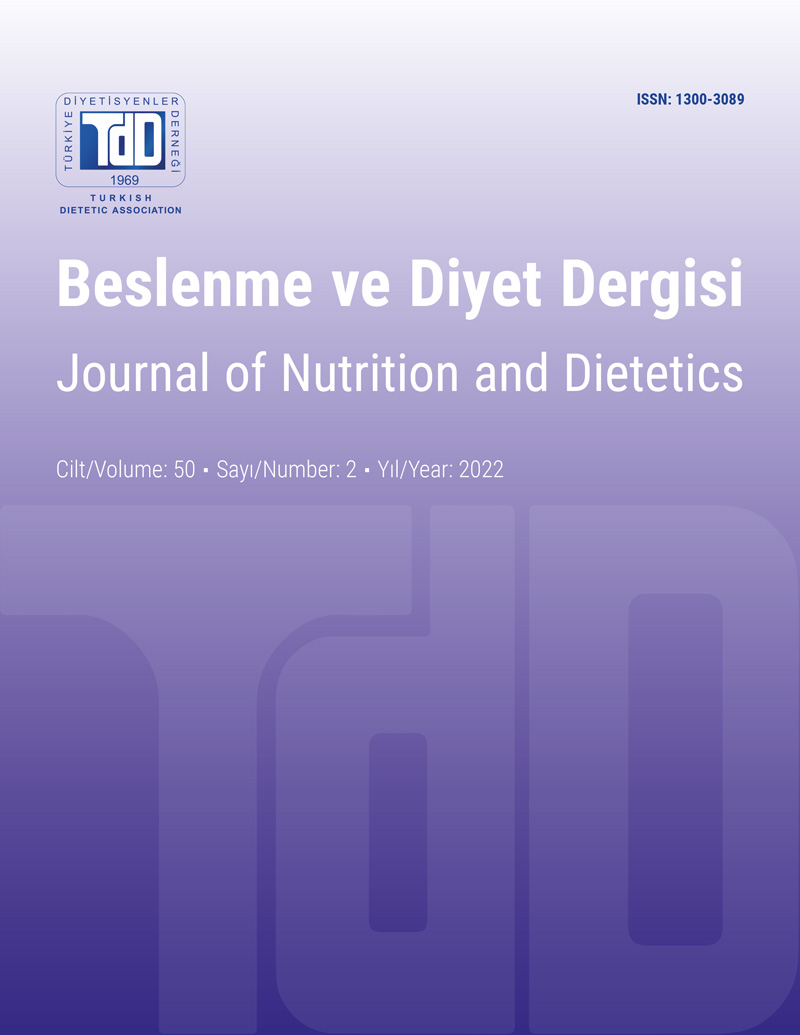Evaluation of Mindful Eating and Related Factors in University Students
DOI:
https://doi.org/10.33076/2022.BDD.1529Keywords:
Eating disorders, emotional eating, mindful eating, obesity, weight controlAbstract
Aim: In this research, it was aimed to measure mindful eating in university students and to examine the change of mindful eating with students’ socio-demographic characteristics, eating behaviors, existing eating habits and emotional states.
Individuals and Method: The research was carried out with the students of Aydın Adnan Menderes University Faculty of Health Sciences as a cross-sectional study. Data were collected between November 2019-January 2020. Mindful Eating Questionnaire (MEQ), Beck Depression Scale (BDS), and a questionnaire prepared by researchers were used to collect data.
Results: Significant difference was found between the findings of the students participating in the study, such as body mass index (BMI), residence, chronic disease, and their MEQ scores (p<0.05). Significant difference was found between the mean scores of the mindfulnes sub-dimension of MEQ and gender, men’s mindfulness score is higher than women’s (p<0.05). Significant difference was found between the BMI values and eating without thinking, emotional eating, interference (p<0.05). It has been determined that while obese individuals have lower eating without thinking and interference scores, emotional eating behavior is less in underweight individuals (p<0.05). Participants with emotional eating behavior were found to have higher depression levels. (p<0.01). As individuals’ eating without thinking behaviors increase, their depression levels increase (p<0.01).
Conclusion: This research shows that mindful eating and its sub-dimensions are associated with socio-demographic characteristics, eating habits, depression levels of individuals. Strengthening mindful eating or strengthening its related sub-dimensions can have a positive effect on behaviors such as body weight control, mood, emotional eating, and eating without thinking. From this point of view, it is recommended that future studies on mindful eating should be studied with a more comprehensive and gender-balanced population.

